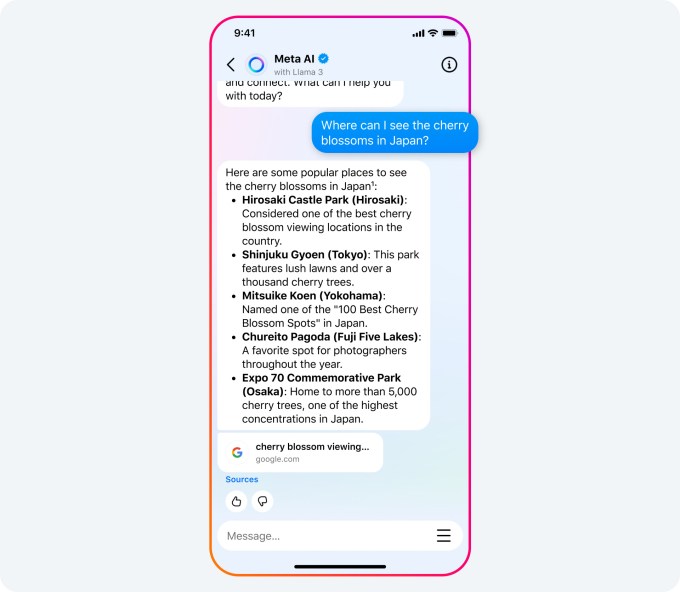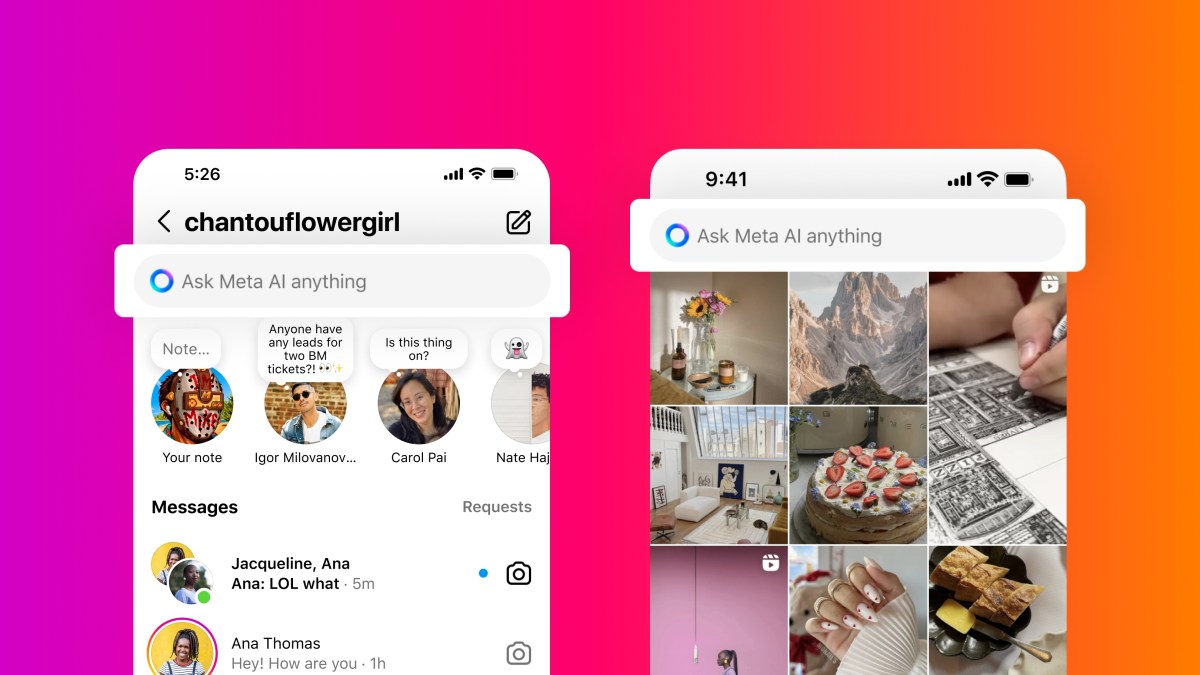Meta adds its AI chatbot, powered by Llama 3, to the search bar across its apps

Meta’s making several big moves today to promote its AI services across its platform. The company has upgraded its AI chatbot with its newest large language model, Llama 3, and it is now running it in the search bar of its four major apps (Facebook, Messenger, Instagram and WhatsApp) across multiple countries. Alongside this, the company launched other new features, such as faster image generation and access to web search results.
This confirms and extends a test that TechCrunch reported on last week, when we spotted that the company had started testing Meta AI on Instagram’s search bar.
Additionally, the company is also launching a new meta.ai site for users to access the chatbot.
The news underscores Meta’s efforts to stake out a position as a mover and shaker amid the current hype for generative AI tools among consumers. Chasing after other popular services in the market such as those from OpenAI, Mark Zuckerberg claimed today that Meta AI is possibly the “most intelligent AI assistant that you can freely use.”
Meta first rolled out Meta AI in the U.S. last year. It is now expanding the chatbot in the English language in over a dozen countries, including Australia, Canada, Ghana, Jamaica, Malawi, New Zealand, Nigeria, Pakistan, Singapore, South Africa, Uganda, Zambia and Zimbabwe.
The company last week started testing Meta AI in countries like India and Nigeria, but notably, India was missing from today’s announcement. Meta said that it plans to keep Meta AI in test mode in the country at the moment.
“We continue to learn from our users tests in India. As we do with many of our AI products and features, we test them publicly in varying phases and in a limited capacity,” a company spokesperson said in a statement.
New features
Users could already ask Meta AI for writing or recipe suggestions. Now, they can also ask for web-related results powered by Google and Bing.

Image Credits: Meta
The company said that it is also making image generation faster. Plus, users can ask Meta AI to animate an image or turn an image into a GIF. Users can see the AI tool modifying the image in real time as they type. The company has also worked on making image quality of AI-generated photos better.

Image Credits: Meta
AI-powered image-generation tools have been bad at spelling out words. Meta claims that its new model has also shown improvements in this area.
All AI things everywhere at once
Meta is adopting the approach of having Meta AI available in as many places as it can. It is making the bot available on the search bar, in individual and group chats and even in the feed.

Image Credits: Meta
The company said that you can ask questions related to posts in your Facebook feed. For example, if you see a photo of the aurora borealis, you could ask Meta AI for suggestions about what is the best time to visit Iceland to see northern lights.

Image Credits: Meta
Meta AI is already available on the Ray-Ban smart glasses, and the company said that soon it will be available on the Meta Quest headset, too.
There are downsides to having AI in so many places. Specifically, the models can “hallucinate” and make up random, often non-sensical responses, so using them across multiple platforms could end up presenting a content moderation nightmare. Earlier this week, 404 Media reported that Meta AI, chatting in a parents group, said that it had a gifted and academically challenged child who attended a particular school in New York. (Parents spotted the odd message, and Meta eventually also weighed in and removed the answer, saying that the company would continue to work on improving these systems.)
“We share information within the features themselves to help people understand that AI might return inaccurate or inappropriate outputs. Since we launched, we’ve constantly released updates and improvements to our models, and we’re continuing to work on making them better,” Meta told 404 Media.


